Your Oral Health Matters to Us
Get Brighter Smile from Sri Lanka's Best Dentists
Book an Appointment


Committed To Dental Excellence
Experience advanced dental care with modern technology, skilled professionals, and personalized treatments at Primrose Dental Hospital. Our expert team, trained worldwide, ensures high-quality, painless, and stress-free services in a friendly environment.
We strictly follow WHO guidelines for safety. Contact us to enhance your smile and oral health today!
Facilities
We prioritize your safety with strict sterilization and hygiene standards, using advanced disinfection methods. Our protocols exceed professional and government guidelines, including:
Extensive use of disposable supplies (gloves, masks, needles).
Thorough cleaning of instruments with ultrasonic machines and manual inspection.
Complete sterilization of all instruments, including dental handpieces.
Routine maintenance of all equipment per manufacturer recommendations.

Call Us Today for Consultations and more
Expert care, advanced tech, healthy smile—contact us today!
Our Services
Dental services provided by primrose hospital
Dental Implants
Dental implants are artificial roots, enabling natural chewing, with mini implants being cheaper but smaller.
Root Canals
Root canal treatment removes infected pulp, preserving the tooth, preventing misalignment, and avoiding artificial replacements.
Crown and Bridge
Crowns cover damaged teeth, while bridges replace missing teeth, both fixed permanently using surrounding teeth.
Veneers
Veneers improve aesthetics and protect teeth, made from composite or porcelain, bonded using resin cement.
Tooth colour fillings
White fillings blend with teeth, restoring natural appearance, with composite inlays and onlays for damaged teeth.
Periodental & Gum
Gum disease, caused by plaque, leads to tooth loss. Symptoms include swollen gums, bad breath, and bleeding.
Dentures
Dentures replace missing teeth, improving function and appearance. They come in complete or partial types.
Children dentistry
Paedodontics treats dental issues in children and young adults, including tooth decay, gum disease, and anxiety.
Braces
Braces are used in orthodontic treatment to straighten teeth and improve their position for better alignment.
Wisdom Tooth removal
Wisdom teeth may become impacted, causing pain, infection, or misalignment, often requiring extraction for prevention.
Oral Cancer
Oral cancer causes uncontrolled cell growth, leading to sores, lumps, bleeding, numbness, and difficulty swallowing.
TMJoint
TMJ connects the jaw to the skull; disorders cause pain, often treatable without surgery.
Gallery
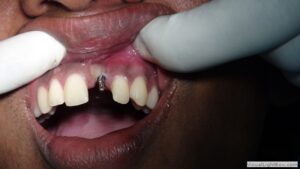
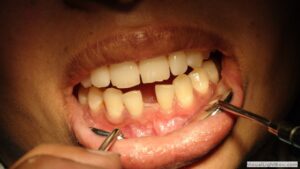
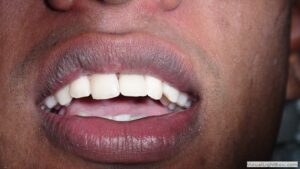
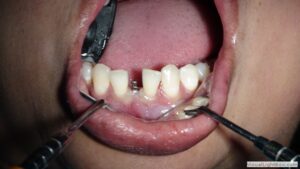
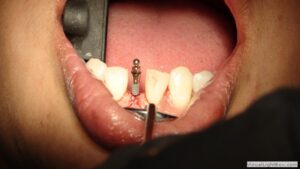
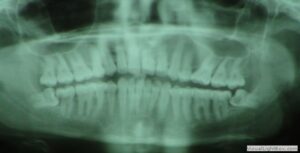
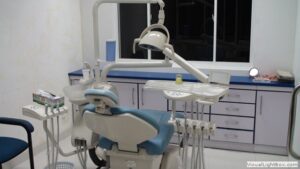
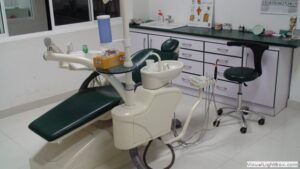
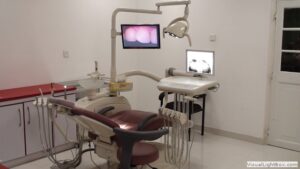
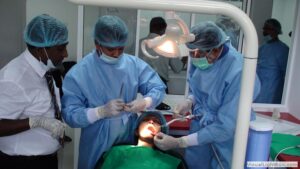
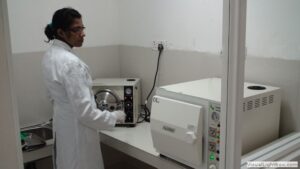
About Us

BDS(SL), FDSRCS(England), FFDRCS(Ireland), MSc(London), MS(Col), FICCDE(Singapore),C. Immuno (London)
Consultant Dental Surgeon and Dental Implantologist
Professor Prasad Amaratunga

BDS (SL), MPhil (Pera) Consultant Dental Surgeon with special Interest in Preventive Dentistry
Dr. Indrani Amaratunga

BDS(SL) , MAAID(Dental Implantology) , MD (Restorative Dentistry)
Dr. Wimalarathne
Faq's
What is implant dentistry?
Implant dentistry is the branch of dentistry that involves installing an artificial tooth into a patient’s jaw in order to replace or restore a missing tooth.
What factors contribute to the long term success of dental implants?
Long-term success depends on multiple factors. Firstly, success will depend on the quality and quantity of bone. The better the bone and the more available, the greater the chance of long-term success. Secondly, the experience and ability of the dental surgeon will be a factor. As with any surgical procedure, there is no substitute for the experience and individual talent of the dentist. And finally, the quality of the restoration placed on top of the implant will play a big role in long-term success. If the design of the implant crowns or over dentures are poorly constructed, and biting forces are not balanced, even the best-placed dental implant will have a compromised survival rate.
Are there any age limitations for dental implants?
No. Any person at any age can have dental implants as long as there is enough bone available in which to place the implants.
What might be some factors that would prevent me from being an implant candidate?
There are some medical factors that might prevent a person from being a good candidate for dental implants. Some of these may be uncontrolled diabetes, chemotherapy or radiation therapy, parathyroid disorders, blood disorders, rare bone disorders or bone marrow cancer. Some physical factors may include insufficient or poor quality bone, low sinuses or nerve bundles.
How often will I need to have my implants checked?
The success of your implants will depend greatly on how well you maintain them. They will need to be professionally cleaned by a hygienist and examined by your implant dentist every three to four months. This hygienist should be trained in the specific procedure of maintaining dental implants. Also, brushing and flossing daily is absolutely necessary for long-term success.
Is dental implant surgery painful?
No. An effective local anesthetic is used during the surgery so that you do not have any discomfort during the placement of the implants. The mild discomfort you might experience after surgery can be controlled with medications.
When can I return to work after implant surgery?
You can go to work the next day, unless some particular surgical circumstance arises. Your implant dentist will discuss all postoperative instructions with you.
What causes tooth loss?
Tooth decay and periodontal disease are the most common causes of tooth loss. Tooth decay takes place when most of the tooth’s mineral makeup has been dissolved away and a hole (cavity) has formed. While tooth decay primarily affects children, periodontal disease, or gum disease, affects mostly adults. Periodontal disease is an infection of the gums caused by the buildup of plaque, and its earliest stage is known as gingivitis.
How many times a day should I brush my teeth?
Most dental professionals recommend that you brush your teeth at least twice a day. Brushing after every meal (and flossing at least once a day) is also a good way to maintain dental health.
When should a child have his/her first dental appointment?
A child should have his first dental appointment no later than his third birthday. Many dentists recommend a child have his first appointment when his first tooth comes in.
What causes oral cancer?
Tobacco (cigarettes, pipes, cigars, chewing tobacco, and snuff) is the most common cause of oral cancer. Combining tobacco use with heavy drinking can also foster the development of oral cancer. Bad hygiene, prolonged irritation of the oral cavity, and extended exposure to strong sunlight on the lips are among other causes of the disease.
What are the warning signs of oral cancer?
Early symptoms of oral cancer include: a sore on the lip, in the mouth, or in the throat that does not heal; a lump on the lip, in the mouth, or in the throat; a red or white patch found anywhere in the mouth; unusual pain or bleeding in the mouth; swelling of the mouth; and any difficulty or discomfort felt in chewig or swallowing.
What are dentures?
Dentures are a partial or complete set of artificial teeth used to occupy the upper or lower jaw, usually attached to a plate. Simply put, dentures are a set of false teeth.
Who needs dentures?
If you have lost most or all of your teeth, you are a perfect candidate for complete dentures. If you still have some natural teeth remaining, a partial denture is recommended to help improve chewing ability, speech, and support for facial muscles.
What is oral/ maxillofacial surgery?
Oral and maxillofacial surgery is the branch of dentistry that deals with the diagnosis and treatment of defects, injuries, and diseases involving the head, mouth, teeth, gums, jaws, and neck.
Who needs to have their wisdom teeth extracted?
Anyone who is in danger of developing impacted wisdom teeth (third molars that only partially erupt or get trapped or stuck in the jaw) should have them removed so that they do not damage adjacent molars and cause other oral problems. In addition, anyone who is getting dentures should have their wisdom teeth removed.
